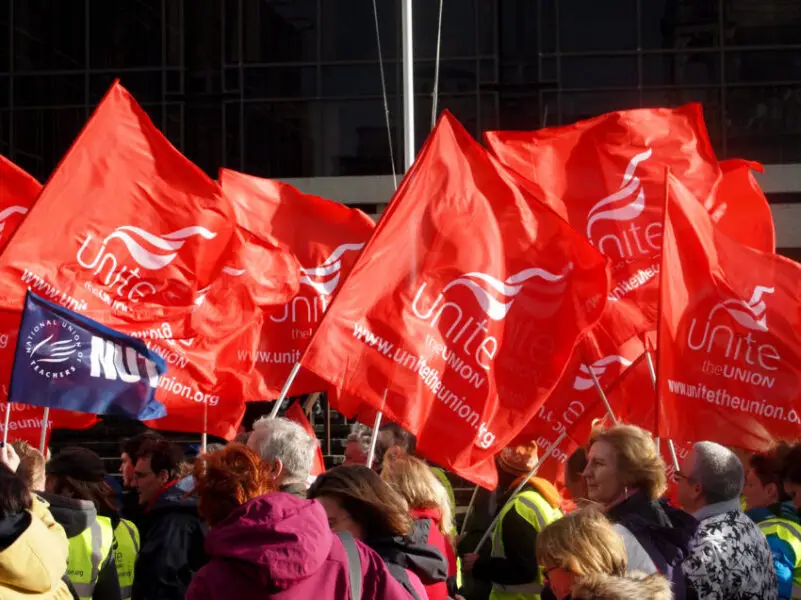Unite has put forward a proposal for a 1% wealth tax on the super-rich, aimed at funding substantial pay increases for public sector workers and addressing the significant number of vacancies in the NHS.
The motion, set to be presented at the upcoming Trades Union Congress (TUC) conference in Brighton, highlights the growing strain between Keir Starmer’s administration and the union movement. Chancellor Rachel Reeves is preparing for her first budget on 30 October, with Labour MPs and ministers anticipating potential tensions at the conference.
This proposal marks a bold move by Unite, suggesting that a 1% tax be levied on assets exceeding £4 million. The union estimates this measure could generate around £25 billion annually, potentially preventing a return to austerity measures and bolstering public services.
Specifically, the tax would target properties, shares, and bank accounts, while exempting mortgaged properties. For instance, an individual with £6 million in assets would be taxed on the £2 million that exceeds the £4 million threshold.
Sharon Graham, Unite’s general secretary, criticised the current state of the UK economy, stating: “Unite’s resolution to the TUC on the economy calls things by their real name. The British economy is broken. We need serious investment in our crippled public services and in industry to ensure a prosperous future for Britain’s workers and their communities.”
Other major unions echo Unite’s stance. The RMT transport union advocates for a wealth tax to fund public investment, while Usdaw, the shop workers’ union, seeks the abolition of the two-child benefit cap. Additionally, the PCS civil service union opposes cuts to the winter fuel allowance and calls for stricter taxation of corporations and the wealthy.
As the TUC conference approaches, the pressure on Labour to balance fiscal responsibility with the demands of its traditional supporters is set to intensify, especially following recent pay agreements between the government and striking workers across various sectors, including healthcare and transportation.
The proposed wealth tax by Unite is expected to be a focal point at the TUC conference, signalling a potential end to the unofficial truce between Labour and the unions. The outcome of this conference could have significant implications for Labour’s approach to fiscal policy and its relationship with its union supporters.

